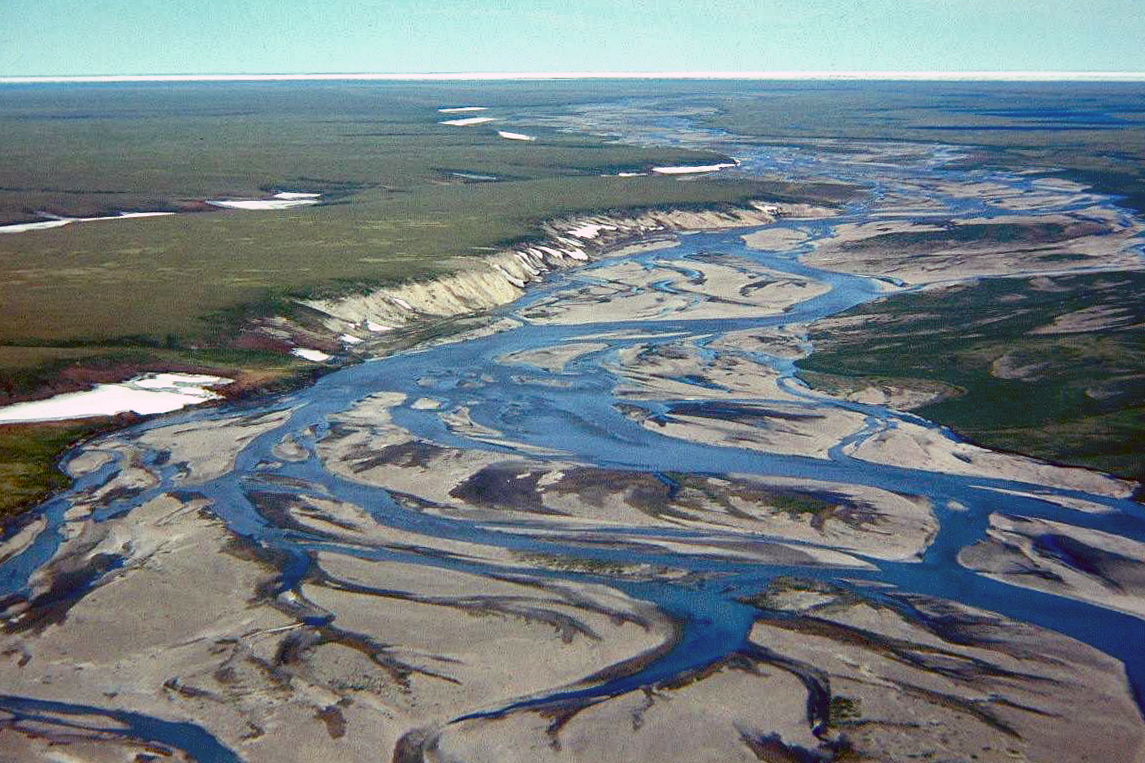Despite federal pause, an Alaska agency pushes forward with Arctic refuge seismic plans
AIDEA is moving forward with seismic plans, even though the Biden administration said earlier this week it was ordering a new environmental review.

The Alaska state agency that holds oil leases in the Arctic National Wildlife Refuge said it has selected contractors to do seismic surveys in the disputed region, despite the Biden administration’s pause on oil exploration there.
The Alaska Industrial Development and Export Authority announced late Wednesday that it plans to award the contract to SAExploration. The Texas-based firm is active in Alaska and was the prospective operator of ANWR seismic programs in two applications that were submitted to the Department of the Interior in the past but ultimately not approved.
The state-owned development authority said its seismic program would run for multiple years and start as early as 2022.
AIDEA also named three subcontractors to conduct support work for the seismic project, including Kaktovik Inupiat Corp., which would have community outreach duties. AIDEA’s board in June authorized $1.5 million in spending to prepare for seismic surveys in the refuge.
[US orders new review of oil drilling in Alaska’s Arctic refuge]
AIDEA’s executive director, in a statement, invoked various laws — including the Alaska National Interest Lands Conservation Act of 1980 and the Alaska Native Claims Settlement Act of 1971 — as evidence that the organization is on solid legal grounds for advancing its exploration work.
“We remain focused on realizing the promises made and the benefits conferred upon all Alaskans by Congress as part of the Statehood Act, ANCSA and ANILCA, which specifically guaranteed access to Alaska’s resources and welcome the support from SAE and their team of subcontractors to respectfully and responsibly carry out AIDEA’s critical pre-development activities,” AIDEA Executive Director Alan Weitzner said in the statement. “KIC will work closely with the local community and subsistence representatives to ensure traditional, local knowledge is incorporated into program activities and prevent disruptions to subsistence users.”
Environmental groups blasted the plan.
“AIDEA’s plans and timeline make no logical sense. Because of deep legal deficiencies in the previous administration’s careless and haphazard leasing program, the Biden administration has suspended leases in the Arctic Refuge and announced this week that it will review the program’s serious legal shortcomings and environmental impacts. That process will likely extend beyond 2022,” Karlin Itchoak, Alaska state director for The Wilderness Society, said in a statement.
The Biden Administration’s Bureau of Land Management kicked off a new environmental impact statement process for ANWR oil leasing. The new environmental study is intended to examine what the Biden administration contends were deficiencies in the Trump administration’s study of oil development’s environmental impacts.
Announcement of the supplemental environmental impact statement followed a series of Biden administration decisions that paused oil activities in the refuge. On June 1, the leases sold by the Trump administration were suspended. The leasing program has been challenged by four lawsuits still pending in federal court in Alaska.
Alaska politicians who support oil development in the refuge have criticized the Biden administration’s decisions. The announcement of the new environmental impact study drew similar criticism.
“This announcement is another example of the Biden Administration attempting to shut down Alaska’s primary industry to appease radical environmental groups determined to turn our state into one big national park,” Gov. Mike Dunleavy said in a statement. “A supplemental EIS only serves to void the results of the environmental study that was already completed and found that oil and gas development in the 1002 area of ANWR, an area set aside for oil and gas exploration, can take place without harming the environment.”
But others are pushing for legislative remedies to shut down the possibility of oil drilling in the refuge. A bill introduced in the U.S. Senate and House would apply formal wilderness designation to the refuge’s coastal plain, thus foreclosing any changes for industrial development.
In his statement, Itchoak urged passage of that legislation.
“American voters have never supported oil drilling in the refuge, and to develop the coastal plain would worsen the climate crisis and violate the food security and human rights of people who have depended on those lands for thousands of years. That’s why we are calling on Congress to use the ongoing budget process to restore protections for the sacred calving grounds of the Porcupine Caribou Herd,” he said.